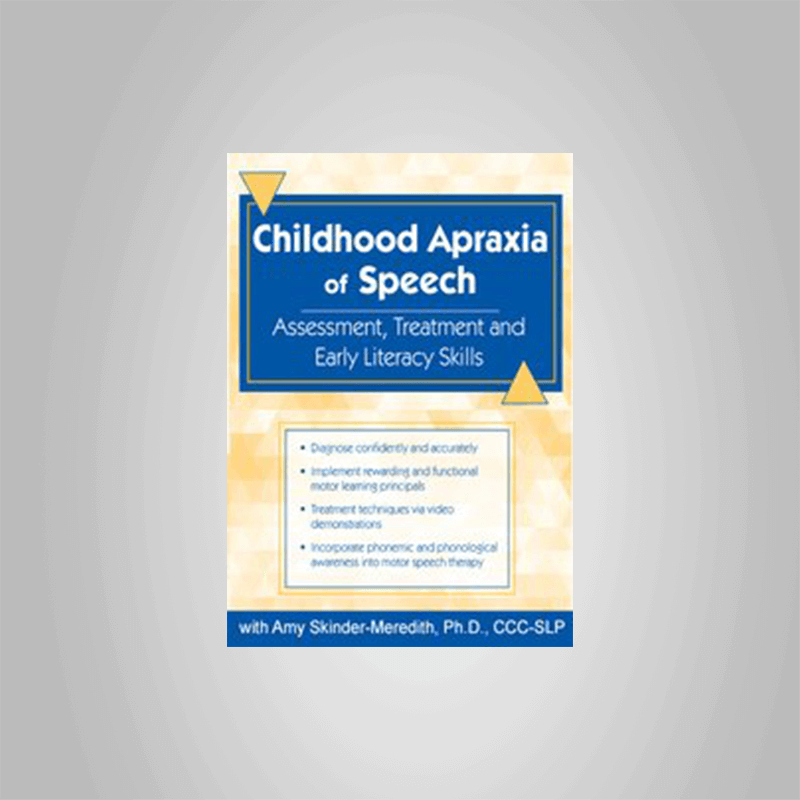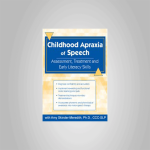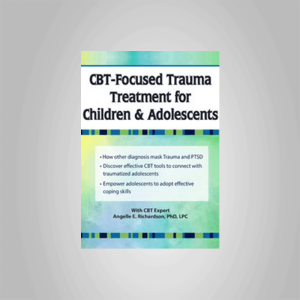Amy Skinder-Meredith – Childhood Apraxia of Speech: Differential Diagnosis & TreatmentDescriptionDiagnose confidently and accuratelyImplement rewarding and functional motor learning principalsTreatment techniques via video demonstrationsIncorporate phonemic and phonological awareness into motor speech therapyDo you work with children who have Childhood Apraxia of Speech (CAS)?Are you challenged with how to diagnose it, as well as how to treat it?If you answered yes, to either question, this workshop is for you!Join Amy Skinder-Meredith, Ph.D., CCC-SLP, an expert in motor speech disorders, and learn effective assessment techniques that will allow you to be more confident in your diagnosis. Case examples of both English and Spanish speaking children will be used to guide us in careful observations pertinent to differential diagnosis and determining the relative contribution of various factors to the child’s communication disorder. We will focus on where to begin treatment and how to provide ongoing treatment for these children. Much of the emphasis on treatment will include implementing motor learning principles along with systematic, careful construction of stimuli that is both rewarding and functional for the client. You will learn fun ways to incorporate phonological awareness into speech therapy in a way that promotes a positive self-esteem. Treatment techniques will be demonstrated through video examples and will apply to a variety of ages and levels of severity. You will also learn the latest research regarding literacy issues found in children with CAS.HandoutsManual (4.40 MB) 85 Pages Available after PurchaseOutlineChildhood Apraxia of Speech (CAS): An OverviewDevelopmental motor speech disordersModel of speech productionDifferent beliefs on the underlying nature of CASCharacteristics of CASVideo and audio examplesEvaluating CASThe pitfalls of misdiagnosisDifferentiate from other causes of speech disordersAssessment techniques designed to differently diagnosePhonologic impairment versus CAS versus dysarthriaDetermine the relative contribution of apraxia, phonologic impairment, dysarthria, cognition, and language to the child’s communication disorderVideo case examples and discussionPrinciples of Motor Learning and How it Applies to Treatment of CASPrecursors to motor learningConditions of practicePractice variabilityTypes of feedbackTreatment of CASKey principles that are the most important to the treatmentClinical decision making in treatment and treatment planningExamples of various bottom-up therapy techniquesDynamic Temporal and Tactile Cueing (DTTC)Treatment for the non-verbal childData collection and documenting progressIncorporate Phonological Awareness and Early Literacy SkillsKey elements to address that will improve both phonological awareness and speechAdaptive tools that are easy to use for teaching phonological awareness, speech, literacy, and languageBenefits of intensive therapy summer camp models that address motor speech, phonological awareness, early literacy skills, and languageFacultyAmy Skinder-Meredith, Ph.D., CCC-SLP Related seminars and products: 2Clinical Associate ProfessorWashington State UniversityAmy Skinder-Meredith, Ph.D., CCC-SLP, received her doctorate from the University of Washington and her M.S. from the University of Arizona. She is an associate clinical professor at Washington State University in Spokane. She is an experienced clinician who has worked in the public school, hospital, and private practice settings. Her primary clinical and research interest is in children with motor speech disorders, and she has published and presented her research on childhood apraxia of speech (CAS) at national conferences. She is investigating the phonological awareness and early reading skills of children with CAS and developing treatment efficacy studies for various CAS treatment techniques Dr. Skinder-Meredith has given numerous workshops for practicing speech-language pathologists across the country on assessment and treatment of CAS.
 Amie & Andrea – The Adrenal Fatigue Detox (Original Version)
₹5,146.00
Amie & Andrea – The Adrenal Fatigue Detox (Original Version)
₹5,146.00
 Anja Garcia – Inferno Heart Rate
₹2,490.00
Anja Garcia – Inferno Heart Rate
₹2,490.00
Amy Skinder-Meredith – Childhood Apraxia of Speech: Differential Diagnosis & Treatment
₹5,810.00






